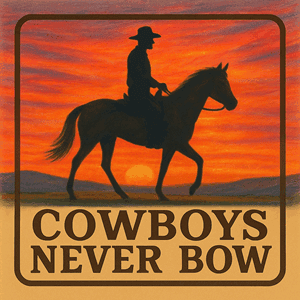Beth Dutton is a study in contradictions. On the one hand, you could say she’s the most powerful, independent woman ever put on television. Murphy Brown’s granddaughter. She’s more fully fleshed-out, though, than a character like Murphy Brown thanks to evolving standards on what you can talk about and what you can’t.
I love our Beth Dutton t-shirt: “I see you for who you are. Don’t make me hurt you with it.” But it may be a little optimistic. Unless you’re family, Beth’s instinct is to hurt first, ask questions later. And her reasoning is: if I hurt you first, you can’t hurt me like Mom and Jamie did. That’s operating out of fear. And constant operating out of fear is not strength; it’s weakness.
How did Beth get so hurt? On a singularly terrifying night, when she first menstruated, Beth got a talk from her mother. “Everything changes for you now, and mostly in bad ways. People are going to treat you different. But most cutting: I’m going to treat you different. My mom was hard on me, and I’m going to be hard on you.” At a time she probably could have used a hug and a pep talk, she got a drill sergeant’s monologue from Cruella DeVille.
Then came the death of her mother. Beth didn’t blame herself for this—her mother did. Evelyn told her it was her fault, so she had to fix it. But Beth couldn’t ride a horse or find her way around. She didn’t get to her father in time (if any speed would have been fast enough). Her mother died. Her last words to Beth were to blame her.
Then she herself became pregnant. She needed an abortion. She trusted Jamie to get her an abortion, and he got her a hysterectomy as well. Jamie the betrayer at his most lethal. She would never have children because her brother rendered that verdict. Another brutal punch with lifelong consequences.
Who else could Beth have become? She could have forgiven her mother for her brutal parenting. She could have forgiven herself for her accidental role in her mother’s death. She could have forgiven Jamie for his betrayal. That’s a mountain of forgiving to do, but it would have gotten the poison out of her bloodstream. Whether it made any difference to her mother or Jamie is irrelevant. It would have helped Beth. Would she have been as strong? I’d argue yes, stronger. Just not as lethal. Is there a place on Yellowstone Ranch for strength that isn’t lethal? Probably not.
It’s this level of complexity that helps you love Beth. You can see her strength and know it emanates from weakness. Rod Stewart and Sheryl Crow taught different generations that “The First Cut is the Deepest.” Beth’s first cut may have been her mother’s parenting style on reaching puberty. Or it may have been her mother’s death. Beth certainly focuses on her mother’s death more than her parenting. Jamie’s cut came later but was still deep. Jamie just happened to be the one who left a deep cut who Beth could get vengeance on.
Can you imagine going back to a show like “I Love Lucy” and thinking about the character this long or in this much depth? Wherever you end up on Beth—strong or weak—she’s Beth. And we love her because she is complex, multi-layered, and full of contradictions. Real people are probably all the same things, but looking at real people and studying them in this way feels somehow… inhumane. Thanks to Taylor Sheridan for giving us the Duttons, The Consolidated Tribes of Broken Rock, and a bunch of ranch hands to think safely about this way.

